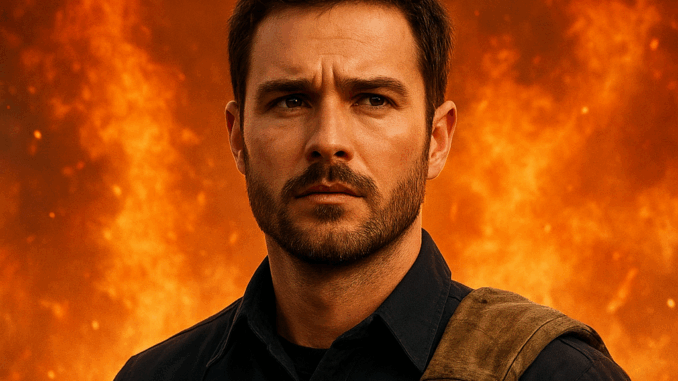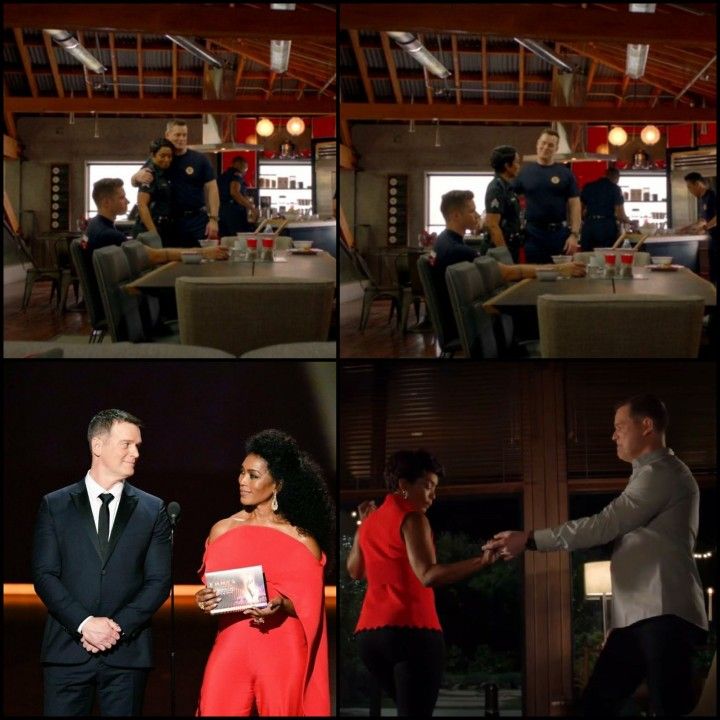
When 9-1-1: Lone Star came to an end, many fans couldn’t help but feel a strange sense of déjà vu. The storyline, the emotional beats, and even the way certain characters’ arcs wrapped up seemed oddly familiar. Was it intentional? Or was it just a case of television déjà vu? Let’s break down why viewers believe the Lone Star finale mirrored the original 9-1-1 series, and whether that’s a good or bad thing.
The Legacy of the 9-1-1 Franchise
The 9-1-1 franchise, created by Ryan Murphy, Brad Falchuk, and Tim Minear, quickly became one of the most gripping first-responder dramas on television. With its mix of jaw-dropping emergencies and deeply personal character arcs, the original 9-1-1 captured millions of fans.
Its spinoff, 9-1-1: Lone Star, carried the torch by setting the action in Austin, Texas. While the original focused on the chaos of Los Angeles, Lone Star leaned into Southern charm, cultural nuances, and fresh character dynamics.
The Problem With Familiar Endings
Here’s the thing: when fans invest years into a TV show, they expect something fresh, bold, and unforgettable. But with Lone Star, the finale’s resemblance to 9-1-1’s earlier plots left audiences wondering—was this intentional symmetry, or just recycled storytelling?
Similar Storylines Between 9-1-1 and Lone Star
1. The Hero’s Last Stand
Both finales spotlighted a lead character making a huge personal sacrifice. On 9-1-1, Bobby faced life-threatening decisions. On Lone Star, Owen found himself in nearly the same position—putting everything on the line to save others.
2. Love Wins the Day
Each series ended by tying up romantic subplots with hope and closure. Relationships tested by trauma came full circle, echoing almost scene-for-scene moments fans had already seen.
3. Team as Family
Both shows reminded viewers that the firehouse isn’t just a workplace—it’s family. The message landed well, but fans noticed the striking parallels in how these bonds were reinforced.
Did Writers Run Out of Ideas?
It’s easy to accuse writers of recycling plots, but TV isn’t that simple. Endings need to be satisfying, emotional, and true to the characters. Sometimes, similar beats emerge naturally because they work. Still, the similarities were hard to ignore.
Why Fans Noticed the Déjà Vu
TV fans are sharp. In the streaming era, audiences binge-watch seasons back-to-back, making plot echoes stand out even more. What might have felt like a subtle callback instead came across as repetitive.
Spin-Off Struggles: Living in the Shadow of the Original
Spinoffs often wrestle with balancing originality and loyalty to the parent show. Lone Star needed to feel connected to 9-1-1, but at times it leaned so hard on familiar beats that it risked being seen as a copycat.
Was It Actually a Tribute?
Another interpretation: maybe the Lone Star finale wasn’t a lack of creativity, but a deliberate homage. By echoing the original show’s storytelling, it created a thematic link—two different cities, same universal struggles of courage, love, and resilience.
How Fans Reacted on Social Media
The online chatter was split:
-
Some loved the symmetry, calling it a poetic way to connect the two series.
-
Others were frustrated, accusing the writers of taking the easy way out.
Twitter threads, Reddit debates, and TikTok breakdowns buzzed with hot takes.
The Importance of Closure in TV Finales
Let’s face it: no finale pleases everyone. When shows end, fans crave both closure and surprise. If Lone Star’s writers leaned on familiar arcs, it may have been their safest route to delivering emotional payoff.
The Business Side of TV Endings
Networks often want predictable but powerful conclusions. After all, the goal is to leave audiences with a sense of satisfaction rather than controversy. In that sense, maybe Lone Star’s finale wasn’t about originality—it was about reliability.
What Makes 9-1-1 and Lone Star Different Despite Similarities
It’s worth noting: while story beats overlapped, the characters and cultural backdrop were unique. Owen’s Texan grit felt different from Bobby’s L.A. resilience. Same themes, different flavors.
Lessons TV Creators Can Learn
-
Audiences value originality. Too much repetition risks fatigue.
-
Spin-offs need bold identity. Borrowing too heavily dilutes their impact.
-
Callbacks should feel intentional. If fans see them as lazy, the magic is lost.
The Bigger Picture: Why We Keep Watching
Even with similarities, fans stick with shows like 9-1-1 and Lone Star because they deliver heart-pounding rescues, emotional twists, and characters we can’t let go of. Familiar endings don’t erase the ride—it just changes how we remember it.
So, Did 9-1-1: Lone Star Really Copy the Original?
The answer? Yes and no. The finale shared striking similarities with 9-1-1, but that doesn’t necessarily mean it was lazy writing. It could be seen as a way to tie both shows together under one legacy, reminding us why we fell in love with the franchise in the first place.

Conclusion
At the end of the day, whether you loved or hated the Lone Star finale depends on your perspective. Was it repetitive? Sure. Was it emotional and satisfying? For many, absolutely. Maybe that’s the beauty of this franchise—it reminds us that no matter the city, no matter the station, the stories of bravery, love, and sacrifice remain universal.
FAQs
1. Did 9-1-1 and Lone Star have the same ending?
Not exactly, but both shows wrapped up with similar themes of sacrifice, love, and family.
2. Why did fans feel the Lone Star finale was repetitive?
Because many of the emotional beats echoed those from 9-1-1’s own finale and major episodes.
3. Was it intentional for Lone Star to mirror 9-1-1?
Possibly—it could have been a tribute rather than unoriginal writing.
4. Which show ended better, 9-1-1 or Lone Star?
That’s subjective. Some prefer 9-1-1’s more layered closure, while others liked Lone Star’s heartfelt simplicity.
5. Will there be more spinoffs in the 9-1-1 universe?
Nothing is confirmed yet, but given the franchise’s popularity, it wouldn’t be surprising.